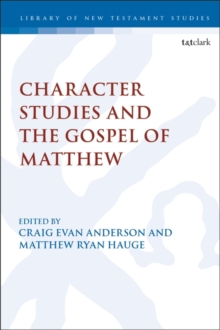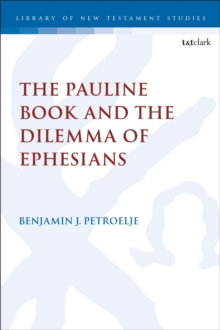
Reading Ephesians : Exploring Social Entrepreneurship in the Text Paperback / softback
by Dr Minna Shkul
Part of the The Library of New Testament Studies series
Paperback / softback
Description
Minna Shkul examines how Ephesians engages in social entrepreneurship - the deliberate shaping of emerging Christian Identity through provision of ideological and social paradigms for the fledgling Christian community.
Shkul uses social entrepreneurship as an umbrella for a variety of social processes reflected in the text.
This eclectic theoretical framework and deutero-Pauline reading position has two key aims.
The first is to offer a theoretically informed social-scientific reading which demonstrates the extensive socio-ideological shaping within the text, and displays the writer's negotiation of different group processes throughout the letter.
The second is to examine emerging Christian identity in the text, testing its ideological and social contours and its reforms upon Jewish traditions.
Crucially this is done without the theological presupposition that something was wrong with the Judaism practised at the time, but rather by focusing upon the divine ‘legitimating' of the Christian group and its culture.
These readings of Ephesians examine how the writer engages in a self-enhancing discourse that reinforces basic components of communality.
These include the construction of a positive in-group identity and the provision of ideological and social legitimating for the community.
Shkul also discusses the textual reflection of communal relations in other groups in Greco-Roman antiquity.
She examines how Christ-followers are positioned in a Jewish symbolic universe, which is forced to make room for Christ and his non-Israelite followers. Finally, she explores the attitude toward non-Israelites within Ephesians, and their need for re-socialization.
Information
-
Only a few left - usually despatched within 24 hours
- Format:Paperback / softback
- Pages:304 pages
- Publisher:Bloomsbury Publishing PLC
- Publication Date:27/06/2019
- Category:
- ISBN:9780567689269
Other Formats
- Hardback from £140.00
Information
-
Only a few left - usually despatched within 24 hours
- Format:Paperback / softback
- Pages:304 pages
- Publisher:Bloomsbury Publishing PLC
- Publication Date:27/06/2019
- Category:
- ISBN:9780567689269










